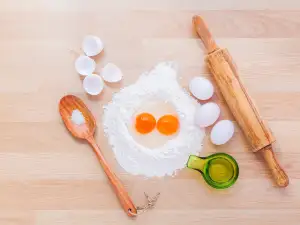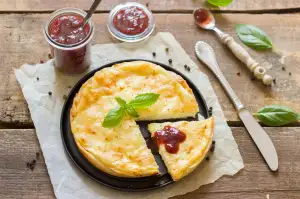Crack the Code: Discover How Long Eggs Stay Fresh with Our Essential Guide

Eggs are a staple ingredient in many kitchens, but have you ever wondered how long they stay fresh? Understanding the shelf life of eggs is essential for ensuring food safety and maintaining quality in your dishes. Eggs can be a versatile and nutritious addition to any meal, but it's important to know when they are still good to use and when it's time to discard them. In this guide, we will explore the factors that affect egg freshness, how to determine if eggs are still good, proper storage techniques, and even some creative recipes to help you make the most of older eggs. So let's crack the code and discover how long eggs really stay fresh!
Factors affecting egg freshness and quality
Factors affecting egg freshness and quality include the age of the eggs, how they are handled, and their storage conditions. As eggs age, their quality gradually declines. The yolk becomes flatter, the white becomes thinner, and the overall taste may change. Proper handling is crucial as rough treatment can damage the shell, increasing the risk of bacterial contamination. Storage conditions also play a significant role in maintaining freshness. Eggs should be stored in a cool place, ideally at a temperature below 45°F (7°C), to slow down deterioration.
How to determine if eggs are still good to use
To determine if eggs are still good to use, there are a few simple tests you can perform. Start by checking the expiration date on the carton. However, keep in mind that eggs can still be safe to eat even after this date has passed.
The first test is the float test. Fill a bowl with water and gently place an egg in it. If the egg sinks to the bottom and lays flat on its side, it is fresh and safe to consume. If it stands upright on the bottom or floats to the top, it is no longer fresh and should be discarded.
Another method is the shake test. Hold the egg close to your ear and shake it gently. If you hear a sloshing sound, it means that the liquid inside has evaporated over time, indicating that the egg is not fresh.
Lastly, you can also crack open the egg onto a plate and examine its appearance and smell. Fresh eggs have clear, thick whites and a bright yellow yolk. Any off-putting odors or unusual colors should be signs of spoilage.
Remember that these tests are not foolproof, so always use your judgment when determining if an egg is still good to use. When in doubt, it's best to err on the side of caution and discard any questionable eggs for safety reasons.
Proper storage techniques to extend egg freshness
Proper storage techniques play a crucial role in extending the freshness of eggs. To maximize their shelf life, it is essential to store them correctly. Start by keeping eggs in their original carton, as it provides protection from light and odors. Place the carton on a shelf inside the refrigerator, rather than on the door where temperatures fluctuate. The ideal temperature for egg storage is between 35°F and 40°F (1.7°C and 4.4°C). Avoid storing eggs near strong-smelling foods as they can absorb odors easily. Additionally, refrain from washing eggs before storing them, as this removes their natural protective coating. By following these storage techniques, you can ensure that your eggs stay fresh for longer periods of time.
Tips for using eggs past their expiration date
When eggs reach their expiration date, many people automatically assume they are no longer safe to use. However, there are still ways to make the most of these eggs before they go to waste. One tip is to perform the float test: simply place an egg in a bowl of water and if it sinks to the bottom and lays flat, it is still fresh. If it stands upright or floats, it's best to discard it. Another option is to use older eggs for baking rather than consuming them raw or lightly cooked. The heat from baking can kill any potential bacteria that may have developed over time. So don't be afraid to get creative with your expired eggs in the kitchen!
Creative recipes to use up older eggs
Don't let your older eggs go to waste! Instead of tossing them out, try these creative recipes that make the most of their unique texture and flavor. Whip up a fluffy frittata loaded with vegetables and cheese for a satisfying brunch or dinner option. Or, why not make a classic custard tart? The rich, creamy filling will be even more delicious with the added depth of flavor from aging eggs. For a sweet treat, bake a batch of chewy meringue cookies using the egg whites. Their crisp exterior and soft interior will have you reaching for seconds. With these recipes, you can transform older eggs into delightful dishes that are both tasty and resourceful.
In conclusion, eggs are a versatile and nutritious ingredient that can be enjoyed in a variety of ways. By understanding the shelf life of eggs and the factors that affect their freshness, you can ensure that you are using eggs that are safe and of high quality. Proper storage techniques, such as refrigeration and not washing eggs until ready to use, can help extend their freshness. Additionally, it is important to know how to determine if an egg is still good to use by conducting simple tests like the float test or checking for any off-putting odors. Even if an egg has passed its expiration date, it can still be used in certain recipes with proper cooking techniques. So don't let those older eggs go to waste! With our guide and some creativity in the kitchen, you can enjoy delicious dishes while ensuring safety and quality.
Published: 05. 02. 2024
Category: Recipes



